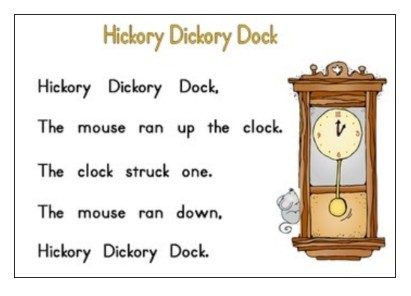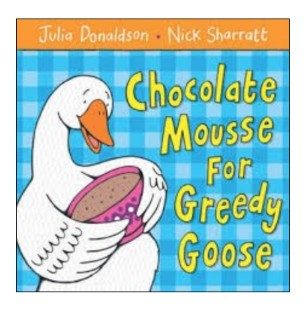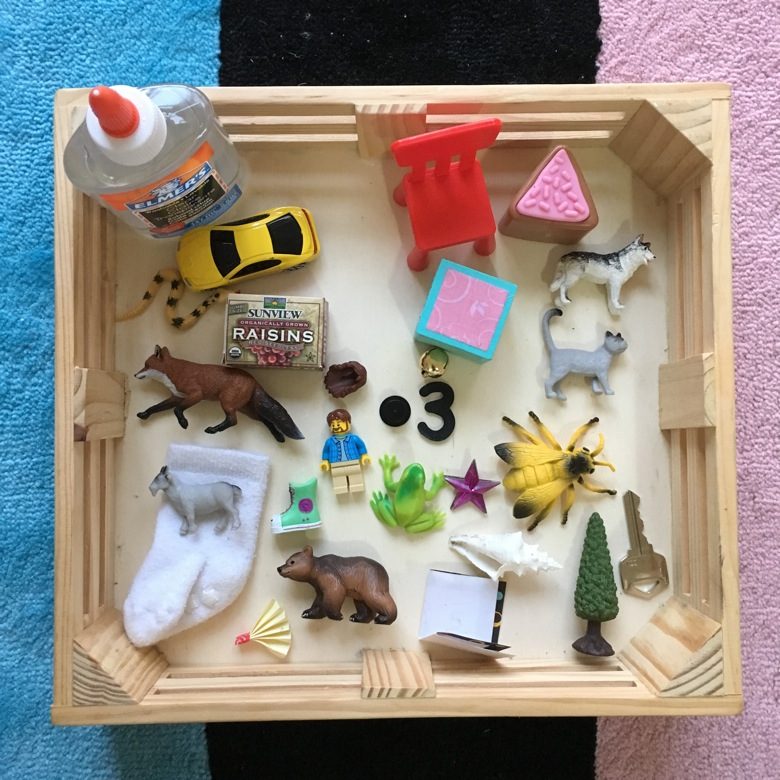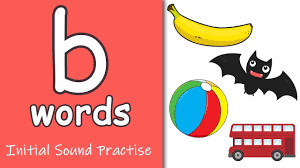Developing your child’s phonological awareness allows them to recognise and use the sounds of spoken language, building an understanding of how they work together to make words.
Rhyming is a helpful place you can start with your child. Rhyme is a sequence of words where there is a regular recurrence of similar sounds found at the end of words – e.g. The cat sat on the mat.
Children will typically learn to recognise rhyming words first and then generate their own rhymes later.
There are lots of ways in which your child can play with rhyme using songs, stories and games. We have given some suggestions but you might have your own favourites. See if your child can hear and match the rhyming words as they play!
Twinkle, Twinkle Little Star
Hickory Dickory Dock
1, 2, 3, 4, 5, Once I Caught A Fish Alive
5 Little Ducks
Sing a Song of Sixpence
Stories
Chocolate Mousse for Greedy Goose
Fox’s Socks
Each Peach Pear Plum
Hairy Maclary
If you don’t have your own copy of a rhyming story, you can go online where you will be able to find read along stories on YouTube, BookTrust (https://www.booktrust.org.uk/), or on an author’s own website.
Games
Rhyming Basket
Gather together objects from your house in a basket, ensuring that each object has another object that rhymes with it i.e. your child’s toy bear and a pear from your fruit bowl (it is usually easiest to use your child’s toys, alongside some household objects)
Demonstrate rhyme to your child by matching the rhyming objects. Repeat this activity on more than one occasion.
If you child has an awareness of rhyme, take it a stage further by singing this song to introduce the game and see if you child can pick out objects from the basket that rhyme.
A tisket, a tasket, Here is the rhyming basket.
Rhyming words end the same, Let’s play the rhyming game.
Generating Rhyme
If your child is showing signs that they are trying to generate rhyme by changing the sounds of a word to make another word that rhymes, you can introduce a game to encourage them.
Sing this rhyme to your child:
Hickety, pickety bumble bee, can you think of words that rhyme with CAR for me?
You may want to give them an example i.e. STAR
Initial Sounds are another important part of your child’s phonological awareness. They can help your child associate sounds with letters and words which they form.
There are lots of fun songs and games you can play with your child to support their understanding.
Try to remember to say the sound the letter makes, not confuse it by saying the name of the letter instead. You can say this is the letter S and it makes the /s/ sound.
If you are unsure of how to say the letter sound correctly, you can refer to the Jolly Phonics website where it gives you can example to listen to – https://www.jollylearning.co.uk/resource-bank-old/learn-the-letter-sounds/
Song
What’s the sound that starts these words?(tune of Old MacDonald had a Farm)
What’s the song that starts these words? Star, Sun and Snake.
(wait for a response)
/s/ is the sound that starts these words, Star, Sun and Snake.
With a /s/ here and a /s/ there, Here a /s/, there a /s/ everywhere a /s/.
/s/ is the sound that starts these words, Star, Sun and Snake.
Games
Your Child’s Initial Sound / Alliteration
Develop your child’s awareness of the initial sound in their own name by saying “Your name begins with the /s/ sound and sun begins with the /s/. Can you think of another word that begins with the /s/ sound? Your child might need a clue i.e. something you wear on your feet (socks)
You can also introduce alliteration, which is when you have words with the same initial sound closely connected. You child will love it if you include their name i.e. Jumping Jack, Amazing Andrew
I Spy
I spy with my little eye something that begins with.…
Your child tries to guess the object that starts with that sound.
In this game you would ask your child to clap when they hear a word with a different initial sound
i.e. star, sun, snake, small, train, sit
Demonstrate first what you are asking your child to do.
You would clap on train as it has a different initial sound
Now give your child another set of words for them to try
Hope you have lots of fun trying out these ideas. Please remember to share your child’s learning by tweeting @GlenwoodFC #Glenwoodlearningathome






